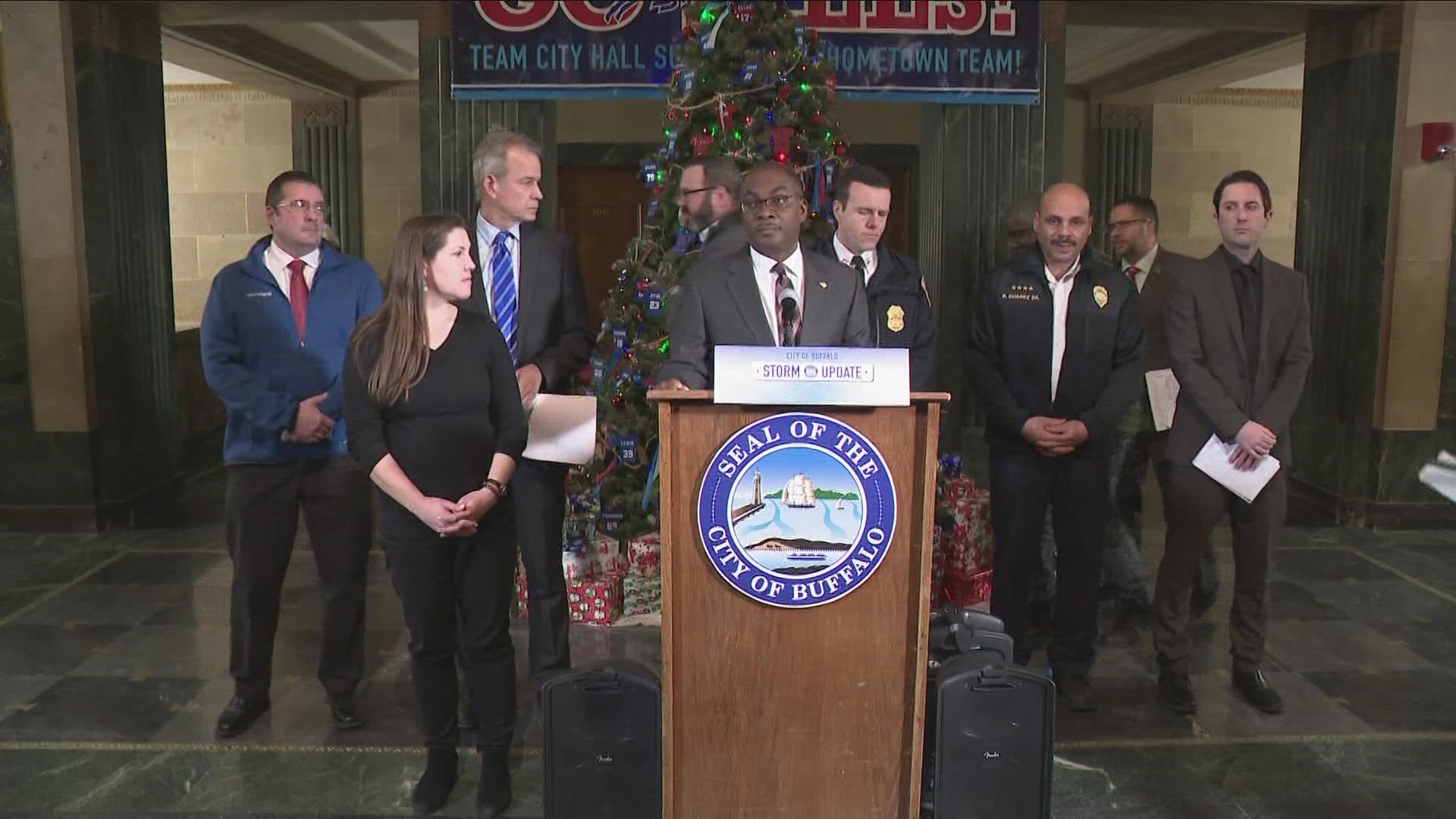BUFFALO, N.Y. — Winter has just begun, but the cold temperatures and the snow have us feeling a little chilly this season.
A Winter Storm Watch has been issued for most of Western New York this weekend and with that storm, we can expect to see heavy snow and high winds.
Winter storms can bring snow, cold temperatures, wind chills, and ice and that could cause power outages, accidents, hypothermia, frostbite, and carbon monoxide poisoning at home and while traveling.
The Federal Emergency Management Administration issued some tips earlier this year to stay warm and safe.
Keep an emergency kit in your vehicle
A car emergency kit can include:
- Jumper cables.
- Flares.
- Ice scraper.
- Car cell phone charger.
- Blankets.
- Map.
- Food and water.
- Warm clothes and other necessities.
Prepare your car for the winter
- Have your mechanic check your vehicle's anti-freeze levels, battery, brakes, heater, and defroster to ensure everything is working properly.
- Install good tires, and make sure they have enough tread.
- Be sure your tank has enough gas, at least a half tank or more in case you get stranded. This also helps keep the fuel line from freezing as well.
Don't use a generator inside the house
- NEVER use a generator inside your home, apartment, basement, shed, or garage.
- Keep portable generators outside, away from windows, and as far away from your home as possible to prevent carbon monoxide poisoning.
Take steps to keep the heat in your house
- Close blinds or curtains to help your house stay warm.
- Close off unused rooms to avoid wasting heat and stuff towels or rags in cracks under doors.
- If you are using a portable heater, be sure to plug only one heat-producing appliance in an outlet at a time and keep anything that can burn at least three feet from any heat source (like a fireplace or radiator).
- Never use a gas stovetop or oven to heat your home.
- If your power is out during extreme winter weather, there may be warming centers near you.
Keep your body warm
- Layers of loose-fitting, lightweight, warm clothing will keep you warmer than a bulky sweater.
- Eat regularly, as food provides the body with energy for producing its own heat.
- Drink liquids such as warm broth or juice. Avoid caffeine and alcohol.
- If you are experiencing numbness, memory loss, drowsiness, or gray-yellow, firm, or waxy skin, it’s possible you are experiencing either frostbite or hypothermia and you should go inside and into a warm area.
For more information on being safe this winter season, https://www.ready.gov/winter-weather
For more Storm Team 2 coverage:
RELATED VIDEO: What is wind chill?

